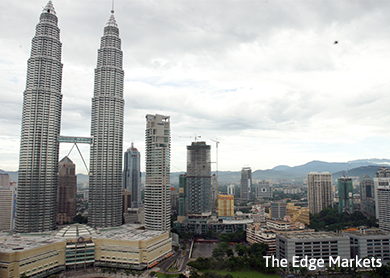
KUALA LUMPUR (June 16): Malaysia may consider further reforms for its urban transportation, suggesting the introduction of congestion charges, user fees and gasoline taxes, which it said could reduce Malaysia’s fiscal deficit by RM19 billion, said the World Bank.
“The recent move to scrap fuel subsidies was a win for equity, the environment, and the budget, with the savings helping the government remain on the path of fiscal consolidation," said World Bank senior country economist for Malaysia Frederico Gil Sander in a statement today.
“Malaysia can now take the next step and explore additional revenue sources such as gasoline taxes that can also promote and finance public transport and a cleaner environment,” he added.
In the statement, the bank suggested further reforms such as the establishing of lead transport agencies to spearhead integrated approaches for the planning and delivery of both public and private transport, and the identification and implementation of sustainable financing mechanisms for the transport sector.
It added that public transportation should be aligned with incentives to discourage the use of private transport in congested areas, such as those successfully implemented in Singapore, London and other major cities.
"Introducing congestion charges, user fees and gasoline taxes would not only result in environmental gains but could also trim the fiscal deficit by as much as RM19 billion,” said the bank.
World Bank country director for Malaysia Ulrich Zachau said while urbanisation has provided more economic opportunities, it has also brought urban sprawl and congestion.
“People lose time and businesses lose money from delays. Malaysia can now invest in smart urban transport solutions, which will make cities more productive and liveable across Malaysia,” Zachau added.